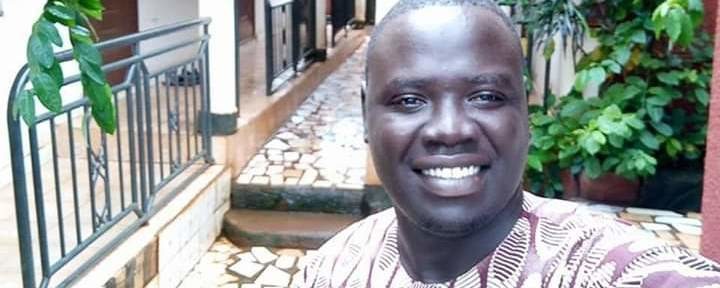A South Sudanese doctor infected with Coronavirus and admitted to John Garang Infectious Diseases Unit is encouraging others to seek treatment when they are sick.
"I felt chest and neck pain and shortness of breath," said Doctor Reagan Taban. "I took malaria medicine for two days, but on the third day the fever was increasing on my body, pain all over my body, shortness of breath, chest pain, and neck, and I decided immediately to go for checkup."
Dr. Taban told Radio Tamazuj he’s been experiencing his symptoms for two weeks. He said he was immediately suspicious of having been infected with the Coronavirus due to his work in the health field.
Covid-19 is a type of Coronavirus that spreads quickly and currently there is no effective treatment or cure. “People can catch COVID-19 from others who have the virus,” according to the World Health Organization (WHO). “The disease spreads primarily from person to person through small droplets from the nose or mouth, which are expelled when a person with COVID-19 coughs, sneezes, or speaks.”
Medical workers often are more likely to get the virus because they work more closely with people who are already sick.
More than 1,600 people have tested positive for the Coronavirus in South Sudan, and more than 20 people have died. Health experts have said the country is not in a good position to fight Covid-19 because of weak health infrastructure and lack of health workers. The John Garang Infectious Diseases Unit, which was first set up in 2018 to prepare for Ebola, is being adapted for Covid-19. The spokesperson for the Ministry of Health said the centre now has 80 beds for patients.
Dr. Taban said he faced challenges upon reaching the center. It took more than two hours for him to be allowed to enter and complete the procedures. He said throughout that time he was suffering from shortness of breath and severe chest pain.
Once he was admitted, he said he was given oxygen to help him breathe.
"My (oxygen) respirator was the last, and if my condition deteriorated more, I would have probably died during this period without first aid," he said.
Taban revealed that the test sample was conducted at the end of June, three days before his health deteriorated, and until the moment he entered the center he was not informed of the result.
"There is a big problem in the laboratory and the health authorities should allocate a special test device to the center because there are patients who are stuck for a whole month here waiting for their results," he said.
He explained that he did not know how he contracted the virus, but said the virus has reached the community transmission stage, so it is difficult to determine.
Community transmission means the virus is being spread through the community.The WHO says “Practicing hand and respiratory hygiene is important at ALL times and is the best way to protect others and yourself. When possible maintain at least a 1 meter distance between yourself and others. This is especially important if you are standing by someone who is coughing or sneezing.
Dr. Taban said the symptoms of the virus can include a sharp rise in body temperature, acute chest pain, cough, loss of smell and taste, shortness of breath and pain in the neck.
The doctor said spending days of isolation alone in the room is so painful and so stressful, because there was no means of entertainment. He only could communicate through the phone or social media.
"Being in the isolation center alone has affected me psychologically, but (it was better) thanks to my friends and family (who supported me),” he said.
As for the medication, Taban said the doctor did not inform him of the therapeutic protocol, as well as his position in the respiratory system, and if his temperature rises he takes a panadol.
“While some western, traditional or home remedies may provide comfort and alleviate symptoms of mild COVID-19, there are no medicines that have been shown to prevent or cure the disease,” according to the WHO.
He described that the isolation center is OK in terms of meals provided to the patients, but there is only one doctor who cannot supervise all patient’s condition at once. The unit is run by the International Medical Corps (IMC) and the Ministry of Health clinicians, according to a statement from the UN.
“This second week to me, I saw the doctor only once, the nurses are the ones caring for me,” he said.
Contact tracing, according to the WHO, is the process of identifying, assessing, and managing people who have been exposed to a disease to prevent onward transmission. That means tracking down anyone a sick person was in close contact with and isolating them and monitoring their symptoms to avoid them getting other people sick.
Dr. Taban said that until now authorities have not communicated with his family or monitored their health. He said that is an indication that the follow-up system of contact tracing has responded very slowly. Still, he said his family is in good condition, since the day he suspected he had symptoms, he isolated himself from his children.
“Self-isolation is an important measure taken by those who have COVID-19 symptoms to avoid infecting others in the community, including family members,” according to the WHO.
The patient called on citizens not to be afraid to come to the center or call 6666 in case they feel symptoms of the Coronavirus until they are treated.
"Although medical services are not good, through talking to the media, the situation will improve," he said.




